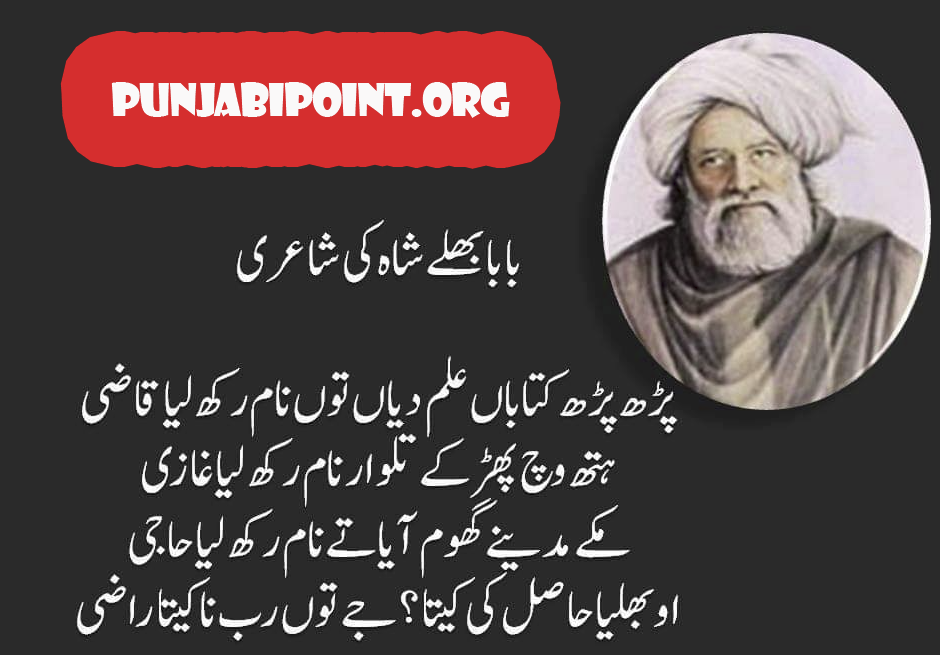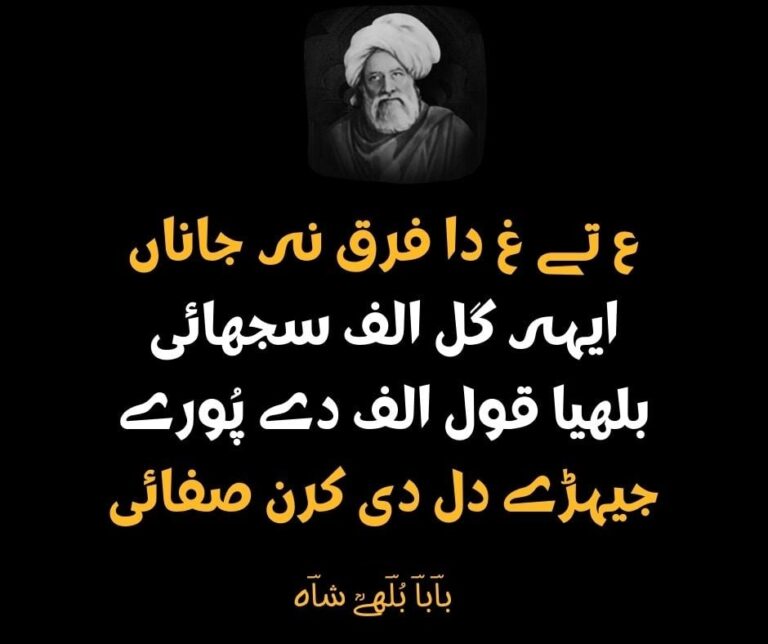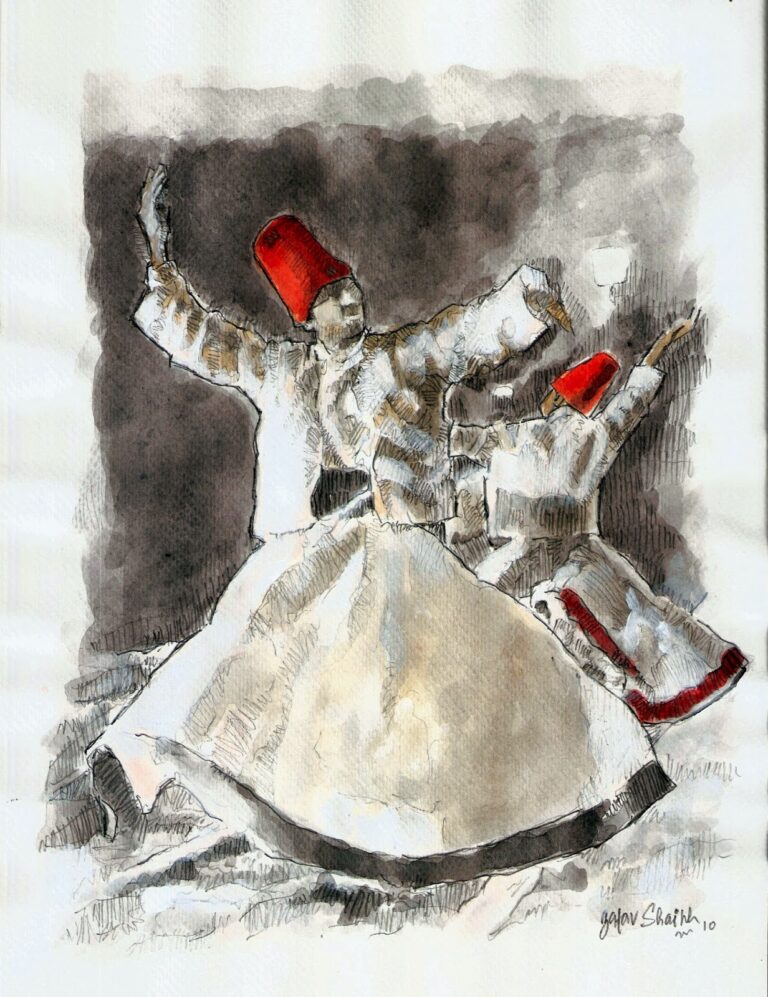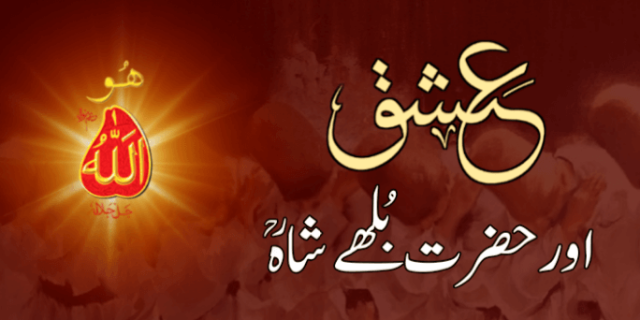Parh parh kitaban ilm diyan tu naam rakh liya Qazi

Bulleh Shah‘s real name was Abdullah Shah, was a Punjabi Muslim Sufi poet, a humanist and philosopher.
Born: 1680 Uch, Bahawalpur, Punjab, Pakistan
Died: 1757 (aged 77) Kasur, Punjab, Pakistan
Bulleh Shah’s writings represent him as a humanist, someone providing solutions to the sociological problems of the world around him as he lives through it, describing the turbulence his motherland of Punjab is passing through, while concurrently searching for God. His poetry highlights his mystical spiritual voyage through the four stages of Sufism: Shariat (Path), Tariqat (Observance), Haqiqat (Truth) and Marfat (Union). The simplicity with which Bulleh Shah has been able to address the complex fundamental issues of life and humanity is a large part of his appeal.
Bulleh Shah’s popularity stretches uniformly across Hindus, Sikhs and Muslims, to the point that much of the written material about this philosopher is from Hindu and Sikh authors.
What are the best Bulleh Shah couplets?
Bulleh Shah, a renowned Punjabi Sufi poet from the 17th century, is celebrated for his profound and thought-provoking couplets (known as kafis) that explore themes of love, spirituality, and the human condition. Here are some of his most famous couplets that capture his essence:
- On the Nature of Love and Separation:
– “Bulleya ki jaana main kaun, na main moman vich masjid, na main vich kaafiraan da jahan.”
– Translation: “Bulleh, I know not who I am; I am neither in the mosque of the believers nor in the world of the infidels.” - On the Quest for Truth:
– “Tere ishq nachaya kar ke thaya thaya.”
– Translation: “Your love has made me dance in ecstasy.” - On the Illusion of Identity:
– “Mitti da putla, mitti vich mil jaana.”
– Translation: “I am a lump of clay, destined to merge back into the earth.” - On the Unity of Existence:
– “Saa’nu ki janaa, tu ki janaa, sa’nun taan jind jaan.”
– Translation: “What do I know, and what do you know? We are but life itself.” - On Spiritual Awakening:
– “Jin ne dard na kita, ohna da ki kita.”
– Translation: “Those who have not felt pain, what can they understand?”
These couplets reflect Bulleh Shah’s deep spiritual insight and his challenge to societal norms. His work emphasizes the importance of inner experience over external rituals, making his poetry timeless and relevant across generations.
What are the characteristics of Bulleh Shah’s poetry?
Bulleh Shah, a prominent Sufi poet from the Punjab region of present-day Pakistan, is known for his profound and expressive poetry that touches on various themes. Here are some key characteristics of his work:
1. Sufi Philosophy
- Bulleh Shah’s poetry is deeply rooted in Sufi concepts, emphasizing love, mysticism, and the quest for union with the Divine. His works often reflect the idea of transcending the physical world to achieve spiritual enlightenment.
2. Universal Love
- His poems promote the idea of universal love, transcending religious and cultural boundaries. Bulleh Shah often criticizes sectarianism and emphasizes the importance of loving all humanity.
3. Simple Language
- He uses straightforward and colloquial language, making his poetry accessible to the common people. This simplicity enhances the emotional depth of his messages.
4. Symbolism and Metaphor
- His poetry is rich in symbolism and metaphor, often using everyday imagery to convey complex spiritual truths. Common symbols include the beloved, the journey, and nature.
5. Critique of Orthodoxy
- Bulleh Shah frequently critiques religious orthodoxy and the hypocrisy of religious leaders. He advocates for a personal connection with the Divine, free from dogma.
6. Emotional Depth
- His works express a wide range of emotions, from longing and love to despair and joy. This emotional resonance makes his poetry relatable to many.
7. Cultural Fusion
- Bulleh Shah’s poetry reflects a blend of different cultural influences, including Punjabi folk traditions and Islamic mysticism, showcasing the rich cultural heritage of the region.
8. Use of Folk Elements
- He incorporates folk tunes and rhythms into his poetry, often making his verses suitable for musical rendition, which has contributed to their enduring popularity.
9. Focus on the Inner Self
- His poetry often emphasizes self-discovery and introspection, urging readers to look within themselves to find truth and meaning.
10. Philosophical Inquiry
- Bulleh Shah’s poems often pose philosophical questions about existence, identity, and the nature of reality, encouraging readers to ponder deep existential issues.
Overall, Bulleh Shah’s poetry remains a powerful voice in Sufi literature, celebrated for its depth, accessibility, and timeless relevance.






